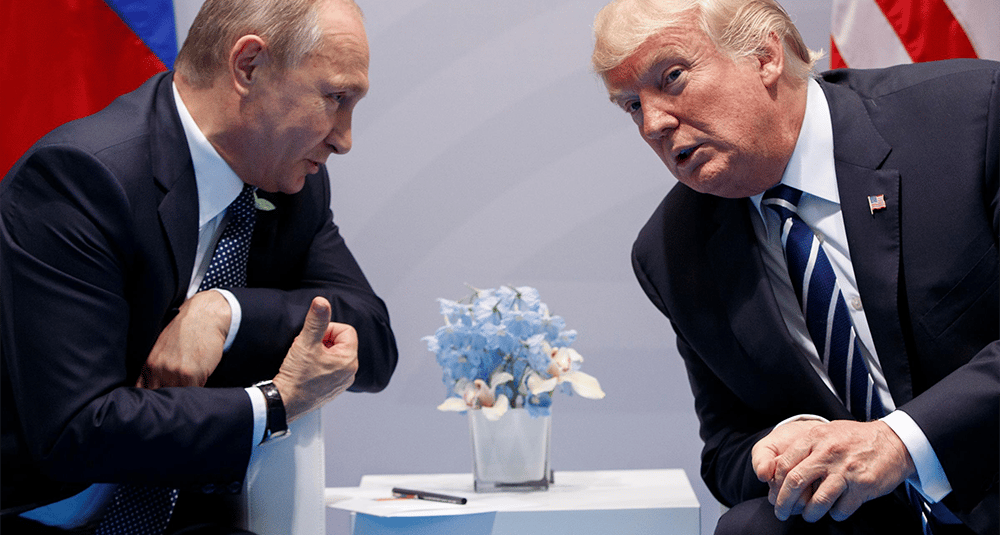Title: Trump’s Rare Rebuke of Putin: A Shift in Tone Amid Kyiv’s Deadly Assault
4/26/20253 min read


Title: Trump’s Rare Rebuke of Putin: A Shift in Tone Amid Kyiv’s Deadly Assault
On Thursday morning, April 24, 2025, former President Donald Trump did something unexpected: he publicly criticized Russian President Vladimir Putin. In a post on his Truth Social platform, Trump urged Putin to “STOP!” following Russia’s brutal hour-long barrage of missiles and drones on Kyiv, Ukraine’s capital. The attack, the deadliest on the city since July 2024, left at least nine dead and over 70 injured. This rare rebuke marks a sharp departure from Trump’s usual stance toward Putin and comes on the heels of his criticism of Ukrainian President Volodymyr Zelenskyy just a day earlier. What’s driving this sudden shift, and what does it mean for the ongoing war in Ukraine? Let’s unpack this development and its broader implications.
A Surprising Call for Restraint
Trump’s criticism of Putin is notable for its rarity. Throughout his political career, Trump has often avoided direct confrontations with the Russian leader, instead praising Putin’s strategic acumen or focusing on diplomatic overtures. Yet, the scale of Russia’s latest assault on Kyiv—a city that has become a symbol of Ukrainian resilience—appears to have prompted a different response. The attack, which targeted civilian infrastructure and residential areas, drew international condemnation, and Trump’s call for Putin to halt the violence aligns, at least momentarily, with global outrage.
The timing of Trump’s statement is particularly intriguing. Just one day prior, on April 23, Trump used Truth Social to lambast Zelenskyy for rejecting territorial concessions to Russia ahead of peace talks scheduled for Wednesday in London. Trump described Zelenskyy’s stance as “very harmful” to negotiations, warning that it would prolong the “killing field” of the Russia-Ukraine war. The contrast between Wednesday’s attack on Zelenskyy and Thursday’s plea to Putin raises questions about Trump’s broader strategy and motivations.
A Delicate Balancing Act
Trump’s dual messaging—criticizing Zelenskyy one day and Putin the next—suggests a calculated attempt to position himself as a neutral arbiter in the conflict. By calling out both leaders, he may be appealing to his domestic base, which includes supporters skeptical of U.S. involvement in Ukraine, while also signaling to the international community that he remains engaged on global issues. This approach allows Trump to maintain his “America First” rhetoric while avoiding complete alignment with either side in the war.
The Kyiv attack, however, may have forced Trump’s hand. The graphic images of destruction and loss of life likely made silence untenable, even for a leader who has historically downplayed Russia’s aggression. By issuing a direct plea to Putin, Trump acknowledges the humanitarian toll of the conflict, perhaps recognizing that inaction could alienate voters or undermine his image as a decisive leader.
The Bigger Picture: Ukraine, Russia, and U.S. Politics
The Russia-Ukraine war, now in its third year, continues to shape global geopolitics and U.S. foreign policy debates. Trump’s comments come at a time when U.S. support for Ukraine is under scrutiny, with some Republican lawmakers advocating for reduced aid. Trump’s Wednesday criticism of Zelenskyy reflects this sentiment, echoing concerns among his supporters that prolonged U.S. involvement risks escalation and diverts resources from domestic priorities.
Yet, the Kyiv assault underscores the stakes of disengagement. Russia’s relentless attacks on civilian targets highlight Putin’s unwillingness to compromise, complicating any path to peace. Trump’s call for Putin to stop, while unlikely to influence Russian strategy, may signal to his followers that he is not wholly indifferent to Ukraine’s plight. It also serves as a reminder of the delicate balance world leaders must strike in addressing a conflict with no easy resolution.
What’s Next for Trump and the War?
As peace talks loom, Trump’s recent statements position him as a vocal player in the discourse surrounding the war, even as a private citizen. His criticism of both Zelenskyy and Putin suggests he is testing the waters for a broader role in shaping U.S. policy or public opinion on the conflict. Whether this marks a genuine shift in his approach to Russia or a fleeting response to a particularly egregious attack remains unclear.
For now, the world watches as Ukraine grapples with the aftermath of Russia’s latest assault. The London talks, involving U.S., European, and Ukrainian officials, will likely set the tone for the next phase of the conflict. Trump’s unexpected intervention adds another layer of complexity to an already volatile situation, leaving observers to wonder how his influence will shape the path forward.
Engaging Readers: What Do You Think?
Trump’s rare criticism of Putin has sparked debate about his intentions and the broader implications for U.S. foreign policy. As we reflect on this development, here are a few questions to consider:
Is Trump’s call for Putin to stop a genuine plea for peace, or a strategic move to appeal to a broader audience?
How might Trump’s dual criticism of Zelenskyy and Putin affect U.S. public opinion on the Russia-Ukraine war?
What role, if any, should former presidents play in shaping discourse around ongoing global conflicts?
Share your thoughts in the comments below, and let’s keep the conversation going.
Photo Credit: Yahoo.com
hello@boncopia.com
+13286036419
© 2025. All rights reserved.